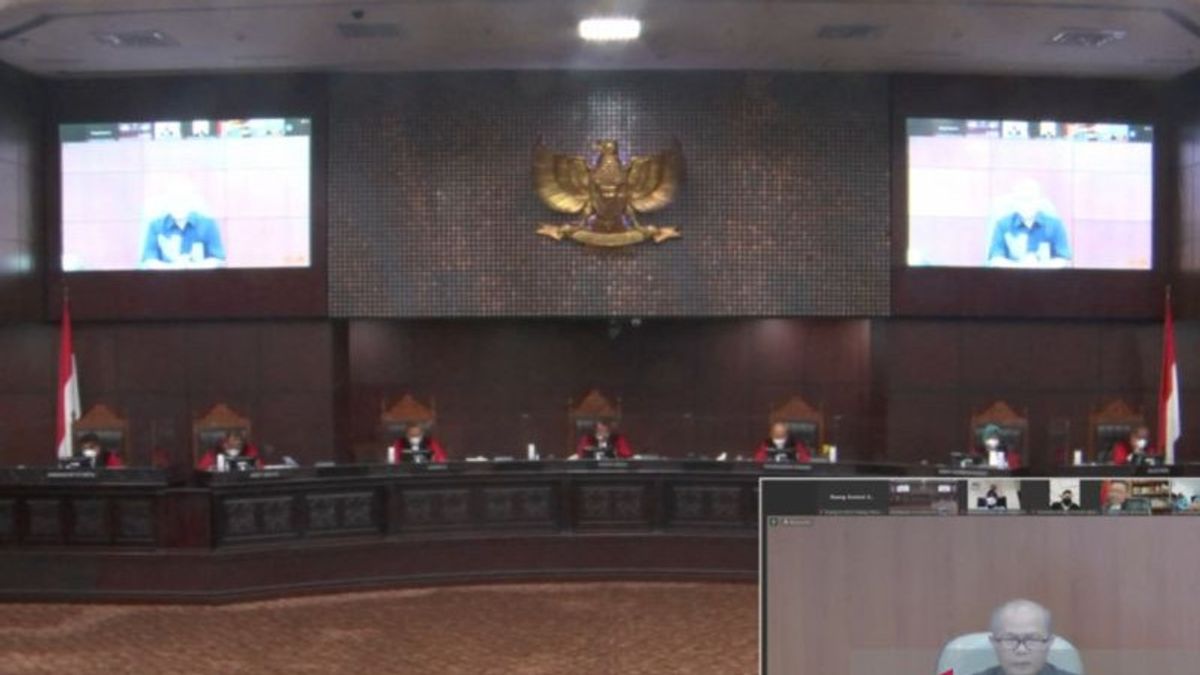JAKARTA - Law expert from the University of Indonesia Prof Agus Sardjono said that economic rights and moral rights contained in Law Number 28 of 2014 concerning Copyright cannot be separated because they are one unit.
"Both of them are a unified whole that cannot be separated like two of the same currency," said Prof. Agus Sardjono, who was brought in as an expert by the government during a hearing on the review of the Copyright Law at the Constitutional Court which was broadcast virtually in Jakarta, Tuesday, July 5.
In case Number 63/PUU-XIX/2021, Prof Agus Sardjono explained that although the Copyright Law contains a special chapter that regulates moral rights and economic rights separately, it does not mean that the two can be separated.
The separation contained in the chapter is only to regulate what includes moral rights and economic rights. For example, in moral rights there are arrangements for changing creations.
When someone changes a written work into cinematography, such as the novel Laskar Pelangi by Andrea Hirata which is later turned into a film, the change must first obtain permission from the novel's author.
Of course, he continued, the change was accompanied by a payment of a certain value and meant that it involved economic factors.
In Law Number 28 of 2014 concerning Copyright, the change is referred to as an adaptation or transformation which is regulated in the substance of economic rights.
The alteration itself is divided into two categories, namely changing the form and content of the creation. To change the form as in the example above, namely from a novel to a film.
While changing the content of the work can be in the form of a translation from English to Indonesian or vice versa. Specifically for translation, it is also clearly regulated in Article 9 Paragraph 1 C of the Copyright Law which states that moral rights are unified to obtain economic rights from the alteration itself.
In the context of music, changes to the content of the creation can also be done. For example, changing the genre of music from rock to dangdut music. Similar to turning a novel into a film, changing the genre of music must also get permission from the creator.
"If the permit is granted, it is usually followed by economic rewards in the form of payment of a number of royalties," he said
The English, Chinese, Japanese, Arabic, and French versions are automatically generated by the AI. So there may still be inaccuracies in translating, please always see Indonesian as our main language. (system supported by DigitalSiber.id)













